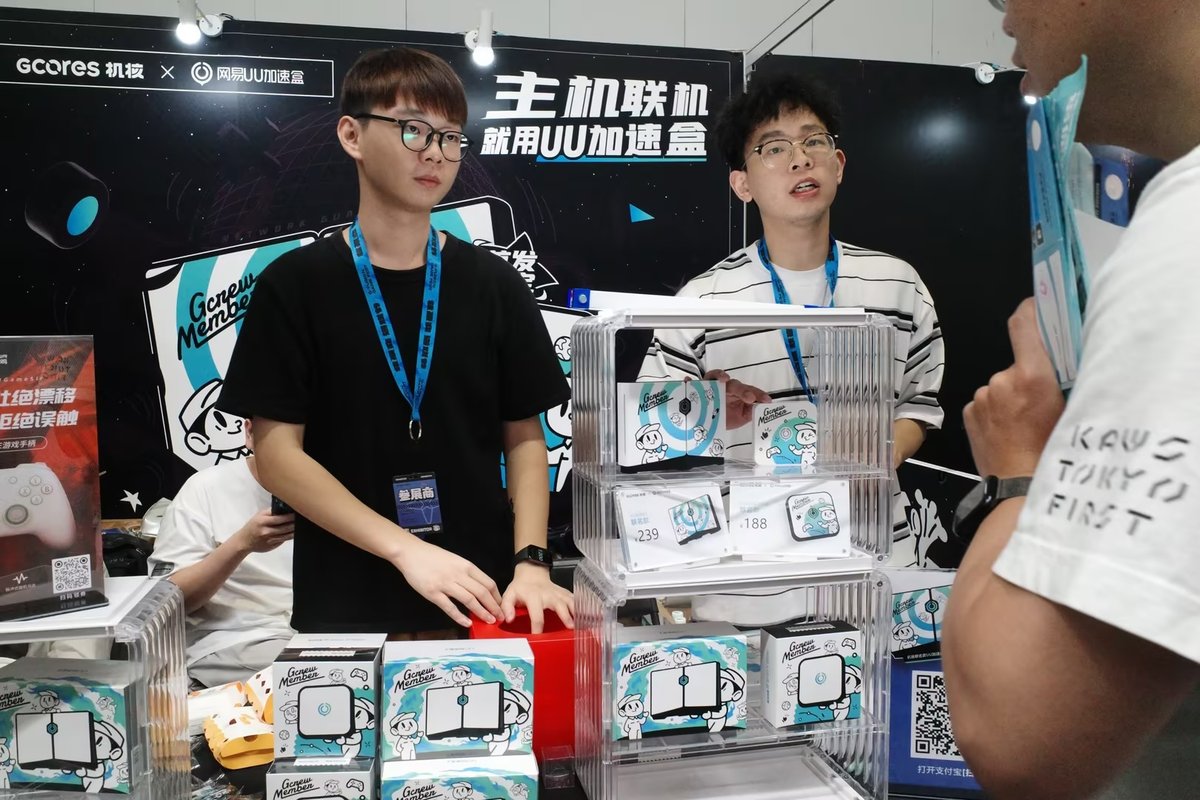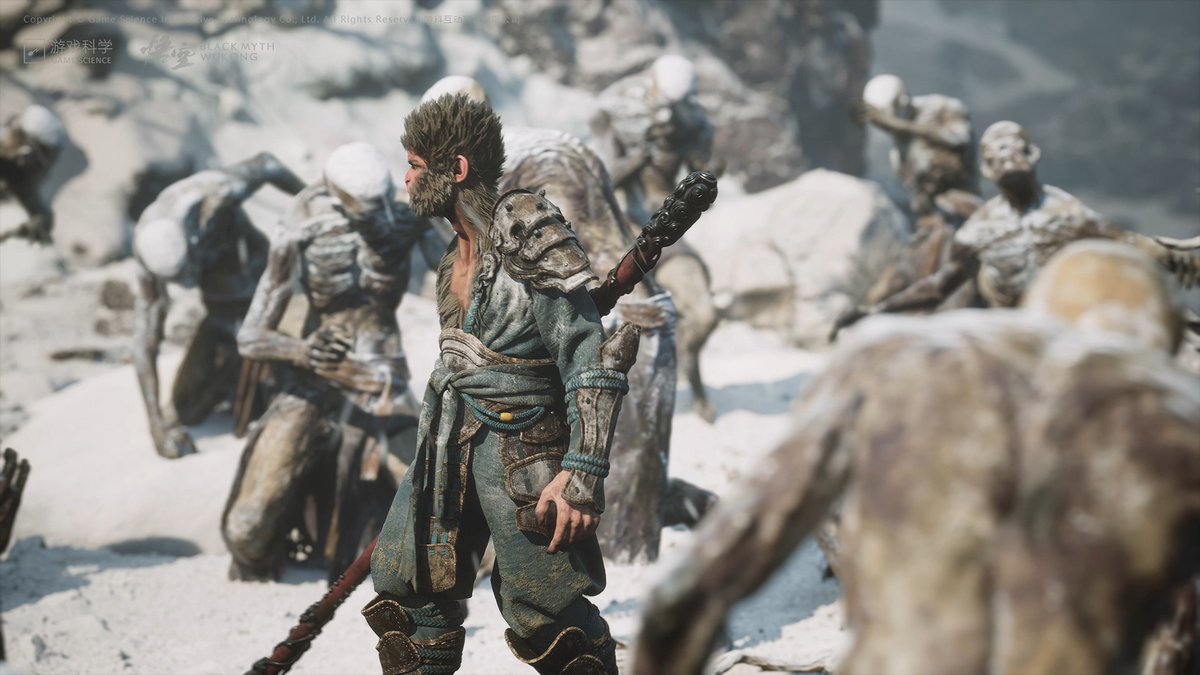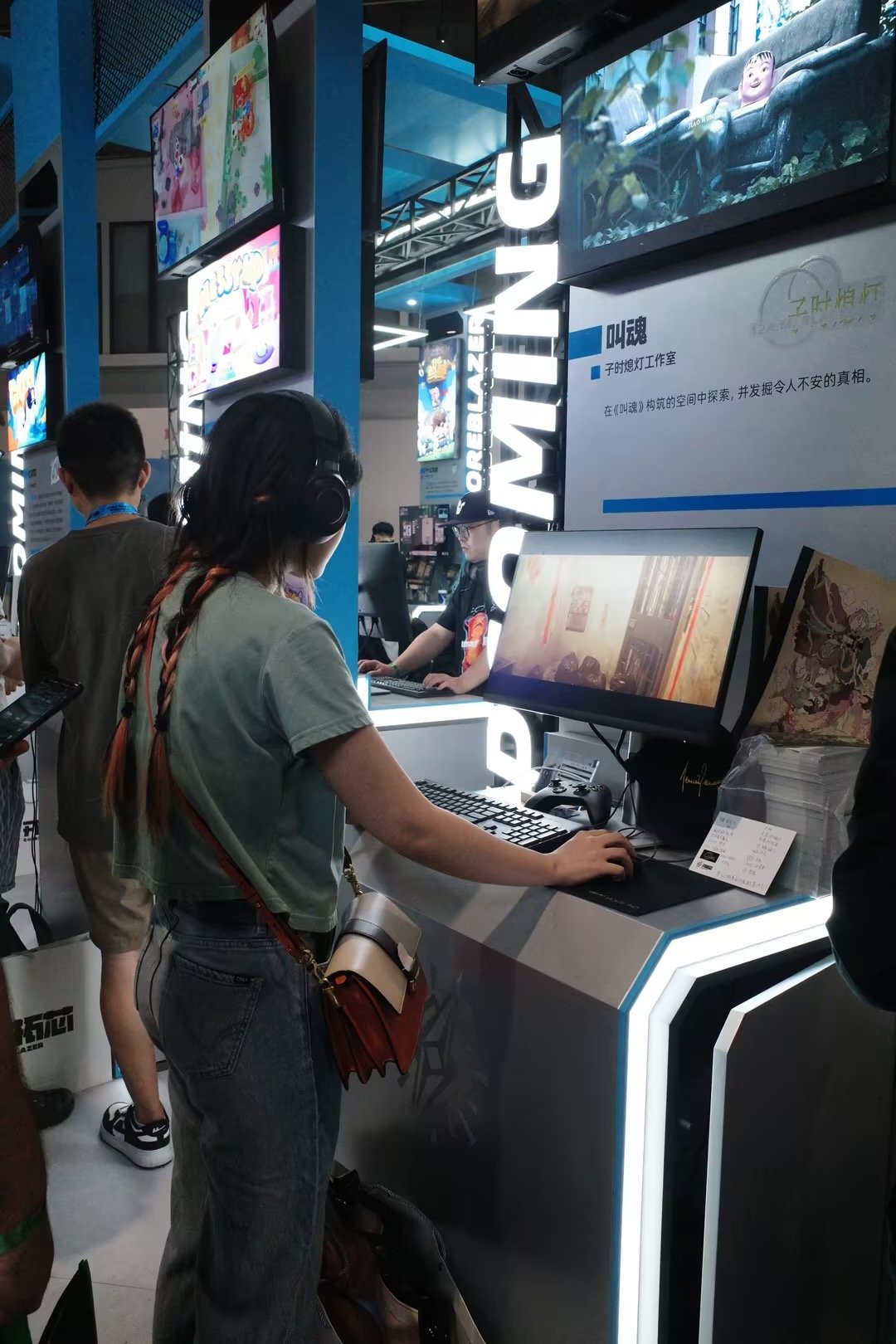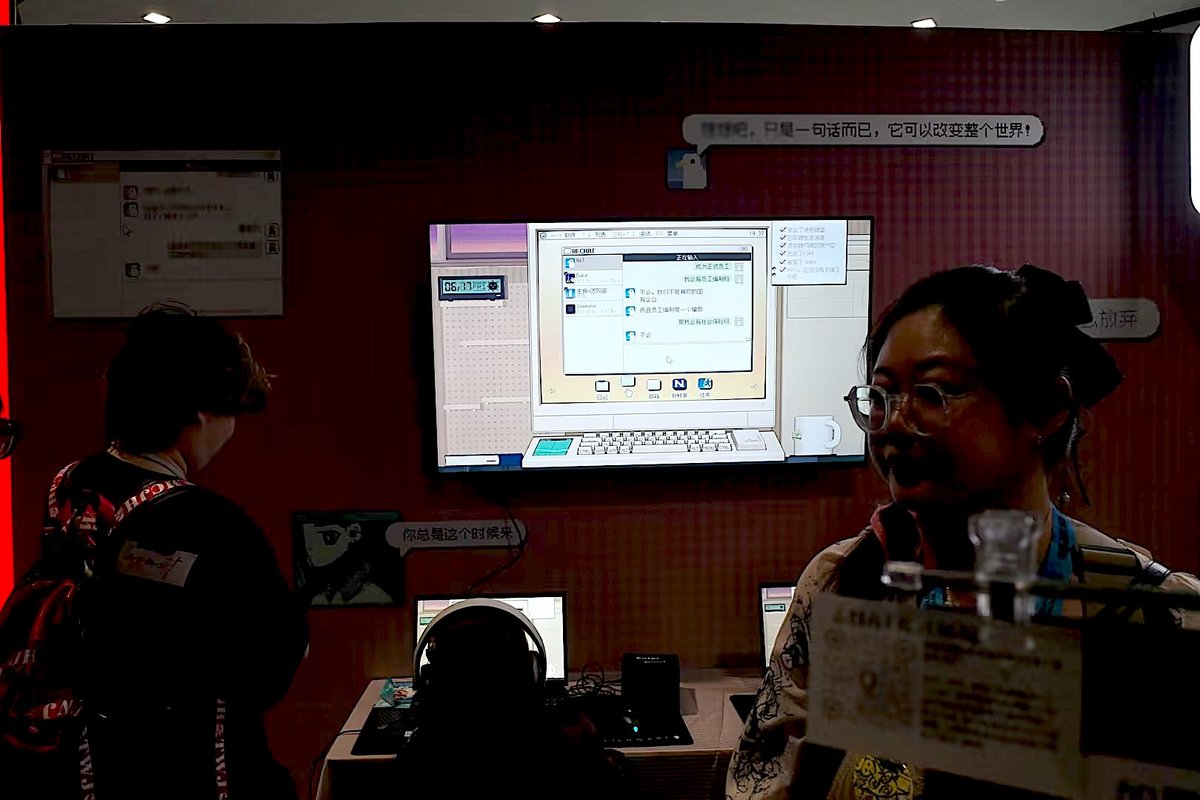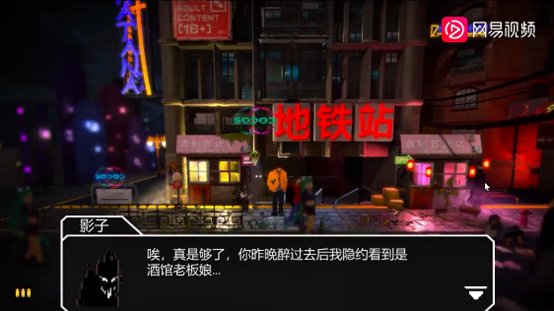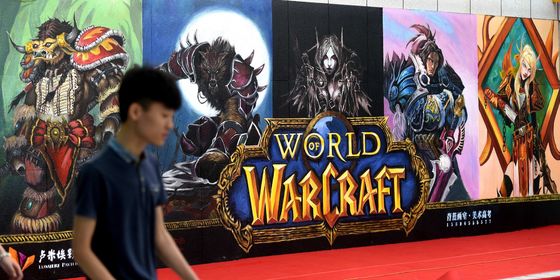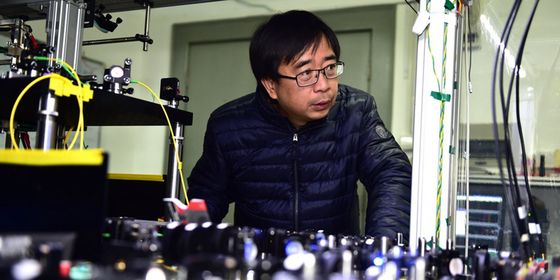This year’s GCORES Beijing offered everything from major international game studios like Bethesda to small Chinese indie game developers—with one very notable exception
For just 129 yuan, epic medieval battles, interstellar space travel in the year 2330, and a glimpse into the not-too-distant post-human future of a crime-ridden city—all of these were within reach in Beijing this past weekend. This year’s GCORES gaming convention, held on the southeastern outskirts of the city, had much to offer for computer, console, and even board game fans. The two main halls of the convention center featured everything from major international game studios like Microsoft-owned Bethesda to small Chinese indie game developers.
Some visitors surrounded cosplayers dressed as characters from popular titles like “Cyberpunk 2077” to take selfies, while others waited in line for hours to try out the demo of “Starfield,” a large-scale roleplaying game developed by the US game studio Bethesda.
Unfortunately, one notable game was absent: “Black Myth: Wukong” by Chinese developer Game Science. The highly-anticipated action RPG draws inspiration from Journey to the West, one of China’s greatest classic novels.
The game, set to be released in the summer of 2024, has generated quite a bit of hype abroad and is considered the first Chinese-made AAA game, an informal category referring to games developed by major studios with higher development and marketing budgets. Players will take on the role of the “Destined One,” and delve into a rich world inspired by ancient Chinese mythology including famous characters like the Monkey King. The game aims to provide a fresh take on the classic Journey to the West tale, focusing on the exploration and discovery of visually stunning landscapes. “If Wukong had been present, this convention would have simply blown up. It would’ve been impossible to buy a ticket,” one convention-goer tells TWOC.
Even though “Wukong” was absent from this year’s convention, there are still some exciting titles, especially in the horror genre, from China’s indie developers that are worth checking out. Here are four top picks from TWOC:
Summoning Spirits (《叫魂》)
“Summoning Spirits” is a horror game set in 1990s Southern China, blending Chinese myths and urban legends to create a unique Chinese scare. The game, scheduled for a 2025 release, emphasizes the need for keen observation, resource management, and calm nerves from players. In environments reminiscent of ’80s and ’90s TV footage, players must uncover clues related to Chinese tropes and use items to solve problems. Beware, lingering too long in one place might get you noticed by malevolent spirits.
S4U (《S4U:都市朋克与恋爱重拳物语》)
Developed by U0U GAMES, “S4U,” or “Speak for You,” is a text-based adventure game where players assume the role of Miki, a part-time “digital substitute” seeking to leave her architecture job. As a ”mouthpiece,” you must type away to change the fates of your clients.
In the short playable demo, one of your clients is a woman suffering from sexual harassment online at the hands of her boss. Your task is to assume her online identity and confront her boss, all without jeopardizing her job. The game is not revolutionary in terms of gameplay—a classic text-based RPG where players choose from available answers to drive the story forward—but rife with Chinese internet humor and cultural references that make this a worthwhile experience. Published by GCORES PUBLISHING, the gaming convention’s own publisher, the small team of three game designers promises continuous updates to quickly complete the game that is currently still in early development.
Breakout 13 (《飞跃13号房》)
Developed by ALT Lab, “Breakout 13” is an RPG interactive video game released in January 2023 and available on Steam and other platforms, with a first DLC released in February. The game tells a unique story about the conflict between gaming culture and prejudice in China.
In the game, players take on the role of “rebellious” teenagers who are sent to a treatment facility, where they unearth dark secrets. The game is largely based on real events and the story of Yang Yongxin, a controversial clinical psychiatrist born in 1962 and head of an infamous internet addiction treatment center in Shandong province. Yang was one of the proponents of so-called electroconvulsive therapy to treat video game and internet addiction in the 2000s. The game challenges players to escape, investigate, and make choices that not only affect their destiny but also the final outcome of the treatment center.
Kill the Shadow (《杀死影子》)
Produced by dogDogTeam, “Kill the Shadow” is an adventure game that blends 2D and 3D platforms, puzzle-solving, and combat. Players take on the role of a former cop who believes he can change the past with the help of a mysterious shadow. As the truth unfolds, the protagonist realizes he’s not the only one with this power and finds himself trapped in someone else’s timeline.
The game, with its pixelated visuals, boasts a generally dark and dystopian aesthetic, with plenty of swearing in the dialog—making it unlikely to receive approval from the Chinese media watchdog for an official release on Chinese platforms.







